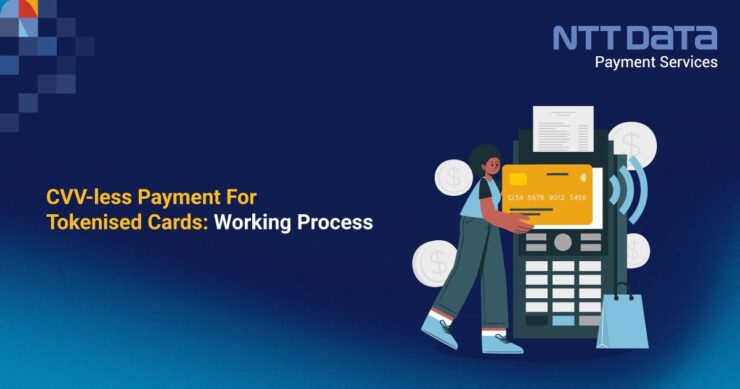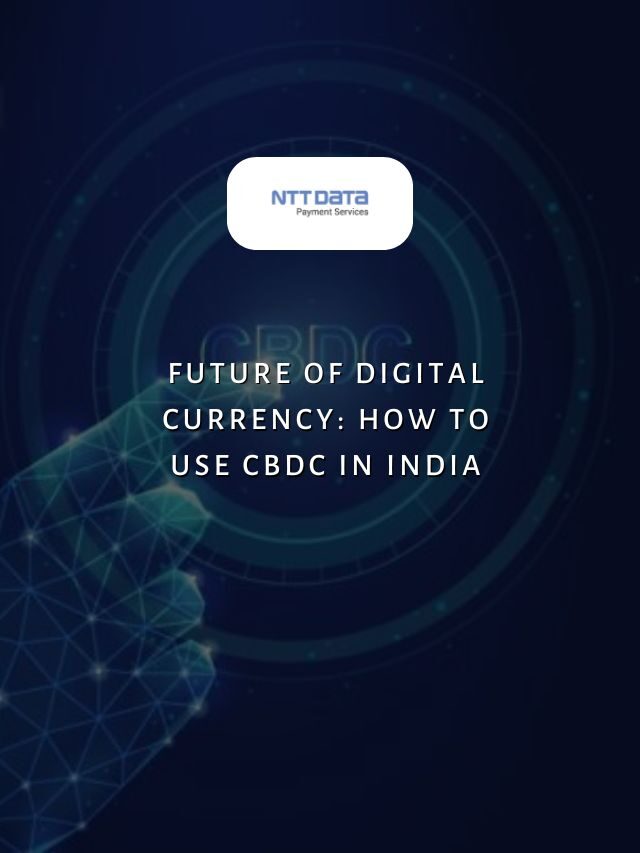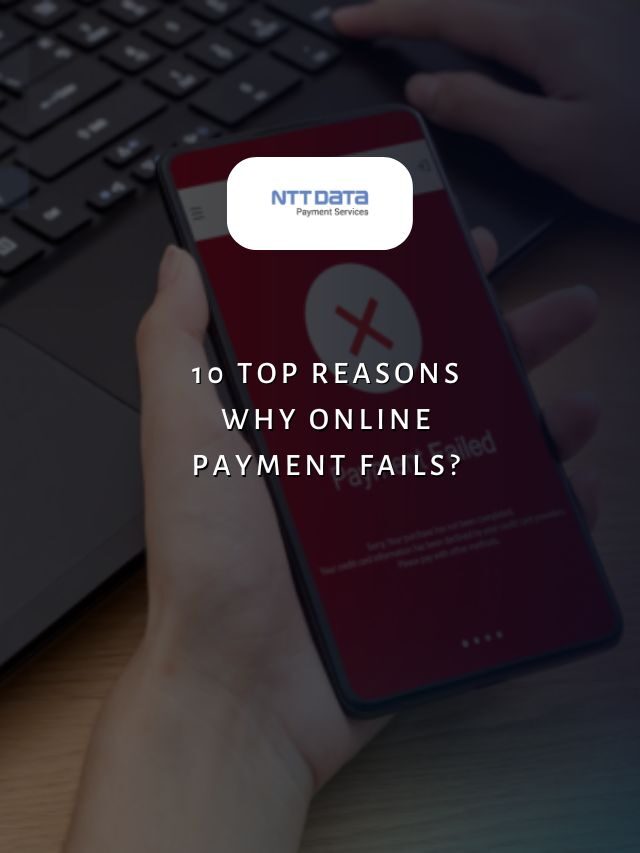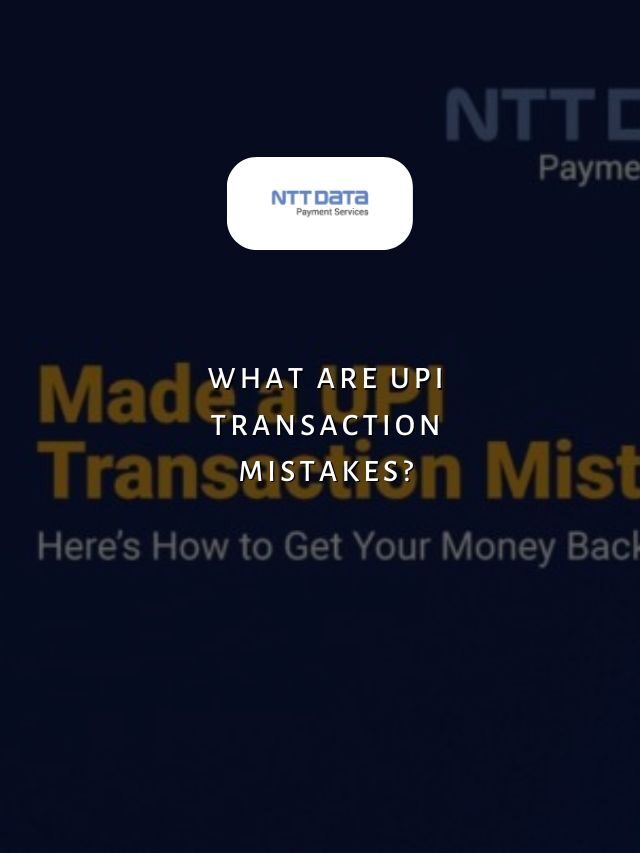
Table of Contents
- 1 CVV less Payment For Tokenised Cards
- 2 Recent Web Stories
- 3 What are Tokenised Cards?
- 4 Working of Tokenised Cards
- 5 5 Benefits of Tokenised Cards
- 6 Experience Seamless Online Transactions With NTT DATA Payment Services
- 7 Boost Payment Security and Speed With Tokenised Cards
- 8 CVV Less Payment For Tokenised Cards: FAQs
Security has become the priority of the moment. People are more concerned about their safety and privacy regarding online transactions. From the risk of CVV theft to the friction of repeated code entry, we need a more robust and user-friendly platform to overcome these traditional transactions.
With tokenisation in payment transactions, you can now process payments online without using sensitive card information but instead a unique token (OTP).
Leverage the power of tokenisation and make all your transactions secure and seamless through CVV-less payment modes.
The working process of CVV less payment for tokenised cards begins with tokenisation during card setup in a digital wallet or payment app. The token serves as a reference during a transaction and takes the place of the CVV. Real-time risk assessment takes into account variables like location and transaction history. Authentication levels provide an additional layer of security via two-factor verification. The token is converted back to the original card data for processing upon approval.
CVV less Payment For Tokenised Cards
CVV-less payment for tokenised cards is a new experience that ensures you don’t have to remember your card details if you have tokenised your card with your e-commerce merchant or payment platform. When you save your card for a domestic e-commerce transaction, they authenticate the transaction through your card details, such as card number, CVV, and card expiration, as a one-time activity.
Once your details are tokenised and saved with the merchant, you must enter the OTP received only by your mobile device every time you use online payment. This makes all your transactions secure and seamless.
Tokenisation is an advanced technology that secures your card transactions without sharing your actual card details with merchants.
Recent Web Stories
What are Tokenised Cards?
A tokenised card is a virtual card stored in your domestic e-commerce or online payment platform. It keeps all your card information secure, allowing you to validate all your online transactions only through a unique token (OTP) instead of the CVV from your card. It does not share your card details with your vendor but shares the transaction information. A Tokenised card is a digital card that makes all your online transactions secure and seamless.
| Also, check what is payment tokenization. |
Working of Tokenised Cards
The purpose of CVV less payment for tokenised cards is that the tokenisation process minimises the need for CVVs while ensuring high security. The working of the CVV-less for tokenised card payment is detailed in the following paragraphs.
1. Tokenised Card Setup:
When a user adds their card details to a digital wallet or a payment app, the sensitive card information is tokenised (saved in the platform). The original card information is replaced with a unique token that is stored securely in the payment service provider’s (PSP) systems.
Remember, the user is expected to provide the card information, such as card number, CVV, and card expiration, as a one-time activity during the setup process.
2. Initial Transaction:
When a user initiates an online payment transaction, this token is used as a reference to the actual card information. Instead of the CVV, the token serves as a primary validation factor that the payment service provider may use.
3. Legitimate Payment Process:
The PSP (payment service provider) performs a risk assessment analysis in real-time that includes analysing various factors, such as the transaction amount, location, and transaction history. This evaluation helps determine the transaction’s legitimacy and whether additional authentication steps are needed.
4. Two-Factor Authentication (2FA):
The CVV-less payment system may encompass biometric authentication, which includes fingerprints, as an additional layer of verification to increase security. As an alternative, the user can be required to enter a one-time password (Token) delivered to their registered device as a part of a two-factor authentication (2FA) process.
5. Transaction Approval:
The payment is processed only after successful authentication, and the token is transformed back into the original card information. The transaction proceeds much like it would with traditional payment methods.
| Did you know? Rupay, Visa, Mastercard, and other online payment networks support tokenisation. Now, you can make seamless international transactions with high payment security. |
5 Benefits of Tokenised Cards
Integrating CVV-free payment for tokenised cards offer several benefits for consumers and merchants:
1. Enhanced Security:
By eliminating the need to share CVV numbers during transactions, the system significantly reduces the risk of CVV theft or interception by cyber-criminals. Even if a token is compromised, it holds no value without the corresponding authentication factors.
2. Streamlined Checkout:
The checkout process is faster as the CVV is not required. This also improves the user experience and lowers cart abandonment rates. This ease of use is essential in today’s fast-paced digital commerce environment.
3. Lower Fraud Rates:
Lower fraud rates are due to the use of CVV-less payments combined with standard risk evaluation and authentication procedures. Both businesses accepting payments and payment service providers could save a lot of money as a result.
4. Global Accessibility:
Payment methods without CVV are not regionally limited. This technology can be used by users everywhere, thus encouraging international digital commerce.
5. Future Innovations:
The popularity of CVV-less payments opens the door for even more cutting-edge payment options. Concepts like biometric authentication and artificial intelligence-driven risk assessment are anticipated to play a more significant role in transaction security as technology advances.
| Did you know? On October 1, 2022, the Reserve Bank of India (RBI) made tokenisation mandatory for all credit and debit cards used in online, point-of-sale, and in-app transactions. The customers will not be charged for availing tokenisation service. |
Experience Seamless Online Transactions With NTT DATA Payment Services
Get the best and most seamless online payment experience with NTT DATA Payment Services.
Access PCI DSS 3.2.1V, a 256-bit encrypted payment gateway for your digital wallet. This keeps your information bulletproof and makes your transactions limitless and quicker.
NTT DATA Payment Services offers a complete payment solution to advance your offline and online businesses from,
- Online Payment Gateway India
- POS machines
- IVR payments
- Mobile applications, and
- Bharat QR Scan and Pay
We ensure maximum comfort, convenience, and safety for all your payments.
Boost Payment Security and Speed With Tokenised Cards
Thus, Eliminating CVV dependence significantly changes the method used to protect sensitive card information. Users can execute online transactions with greater trust because of tokenisation, as they know that their financial information is secured from scammers and cybercriminals.
Real-time risk assessment combined with biometric identification or two-factor verification adds additional security layers, boosting consumer confidence in the world of digital payments. Thus, the workings of CVV less payment for tokenised cards are explained, and you can benefit from their significance for your business to grow.
| Also, you can get frequent updates on nttdatapayments Instagram page. |
CVV Less Payment For Tokenised Cards: FAQs
1. What is CVV less payment for tokenised cards?
CVV-less payments for tokenised cards refer to the process of using tokenised cards, where you can save your card with a domestic e-commerce merchant or online payment platform and make secure and seamless payments without the need to enter your card information every time before making a payment.
2. Can payments be processed without a CVV?
Yes, with the help of tokenised cards, you can make online payments without needing a CVV. Tokenisation ensures your card information is stored securely and makes your transactions seamless.
3. How does card tokenisation work?
Card tokenisation is a process that replaces sensitive card information with a unique token. Since this token is used for all transactions, fraud and unauthorised access are impossible. When the customer submits their purchase details on the merchant’s website, it generates a token. This token is sent back to the merchant if it is authorised to proceed with the transaction.
4. How does tokenisation work in payments in India?
The Reserve Bank of India (RBI) has allowed card networks and card-issuing companies to tokenise debit and credit cards. You can tokenise your card by storing it securely with a trusted online payment service provider.
5. What are RBI guidelines on tokenisation?
As per the latest Reserve Bank of India (RBI) guidelines, merchants can no longer hold your debit card or credit card information for their websites or mobile applications without tokenisation.





